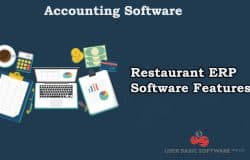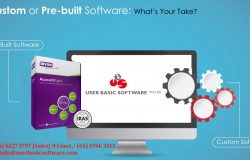In today’s fast-paced business landscape, staying on top of financial management is crucial for any organization’s success.Traditionally, accounting and financial tasks were performed using on-premise software, requiring substantial investments in hardware, infrastructure, and maintenance. However, the emergence of cloud-based accounting software has revolutionized financial management for businesses of all sizes.
This article explores the significant benefits and features of cloud-based accounting software and how it has transformed financial management practices.
What is Cloud-Based Accounting Software?
Cloud-based accounting software is a type of financial management solution that operates on the cloud, meaning all the data and software are hosted and accessed through the internet rather than being installed on individual computers or servers. Users can access their financial information and perform accounting tasks from anywhere, at any time, as long as they have an internet connection and appropriate login credentials.
Benefits of Cloud-Based Accounting Software
Flexibility and Accessibility
One of the primary advantages of cloud-based accounting software is the flexibility it offers. Business owners and finance professionals can access financial data and manage accounts from their laptops, tablets, or smartphones, providing unparalleled convenience and accessibility.
Cost Savings
Cloud-based accounting software eliminates the need for expensive on-premise hardware and infrastructure, reducing upfront costs significantly. Additionally, businesses can opt for subscription-based payment models, allowing them to scale their software usage according to their needs, making it cost-effective for both small startups and large enterprises.
Automatic Updates and Data Backups
With cloud-based solutions, software updates are performed automatically by the service provider. This ensures that users are always using the latest version with the most up-to-date features and security patches. Cloud systems also perform regular data backups, reducing the risk of data loss due to system failures or hardware malfunctions.
Enhanced Security
Cloud-based accounting software providers implement robust security measures to protect their users’ financial data. These measures include data encryption, multi-factor authentication, and secure servers, ensuring that sensitive financial information remains safe from unauthorized access.
Collaboration and Real-Time Reporting
Cloud-based systems facilitate collaboration among team members, accountants, and financial advisors. Multiple users can access and work on financial data simultaneously, streamlining the accounting process. Real-time reporting and dashboards provide instant insights into the company’s financial health, enabling better-informed decision-making.
Key Features of Cloud-Based Accounting Software
Online Invoicing and Payments
Cloud-based accounting software enables businesses to create and send invoices to clients electronically. Customers can make payments online, and the software automatically updates the accounts receivable records, reducing manual data entry and speeding up cash flow.
Expense Tracking and Management
Tracking expenses is crucial for maintaining a clear financial picture. Cloud-based accounting software allows users to upload receipts, categorize expenses, and track business-related costs, simplifying expense management and improving accuracy during tax season.
Bank Reconciliation
Automated bank reconciliation is a significant time-saver for businesses. The software syncs with the company’s bank accounts, credit cards, and other financial institutions, automatically matching transactions and reducing the chances of errors.
Financial Reporting and Analytics
Generating financial reports is essential for understanding business performance. Cloud-based accounting software offers a range of customizable financial reports, such as balance sheets, profit and loss statements, and cash flow reports, helping businesses gain valuable insights into their financial standing.
Integration with Other Business Tools
Many cloud-based accounting software platforms offer integration with other business tools like CRM systems and project management software. This seamless integration enhances workflow efficiency by streamlining data transfer between different applications.
How Cloud-Based Accounting Software Benefits Small Businesses
Streamlined Financial Processes
For small businesses with limited resources, cloud-based accounting software streamlines financial processes, allowing them to focus on core activities. Automated tasks, such as invoicing and expense tracking, free up time for strategic decision-making.
Scalability and Growth
As small businesses grow, their accounting needs evolve. Cloud-based solutions offer scalability, accommodating changing business requirements and expanding data volumes without the need for hardware upgrades.
Remote Work Capabilities
The rise of remote work has made cloud-based accounting software indispensable. Employees and business owners can access financial data and perform accounting tasks securely from anywhere, making collaboration seamless even in a distributed workforce.
Data Accessibility and Transparency
Cloud-based systems promote data accessibility and transparency within an organization. Different team members can access the financial data they need, fostering collaboration and informed decision-making.
Best Cloud-Based Accounting Software for Small Business
Whether you’re struggling to manage your business accounts or searching for a way to simplify financial management, you are at the right place. User Basic Software is one of the best reliable PSG Grant Vendor offerings various software solutions for businesses.
Our cloud-based accounting software has a lot of valuable features to simplify business solutions. Get the best PSG 50% Grant Cloud-Based Accounting Software for your small business and experience the next level of productivity raise in business operations.













